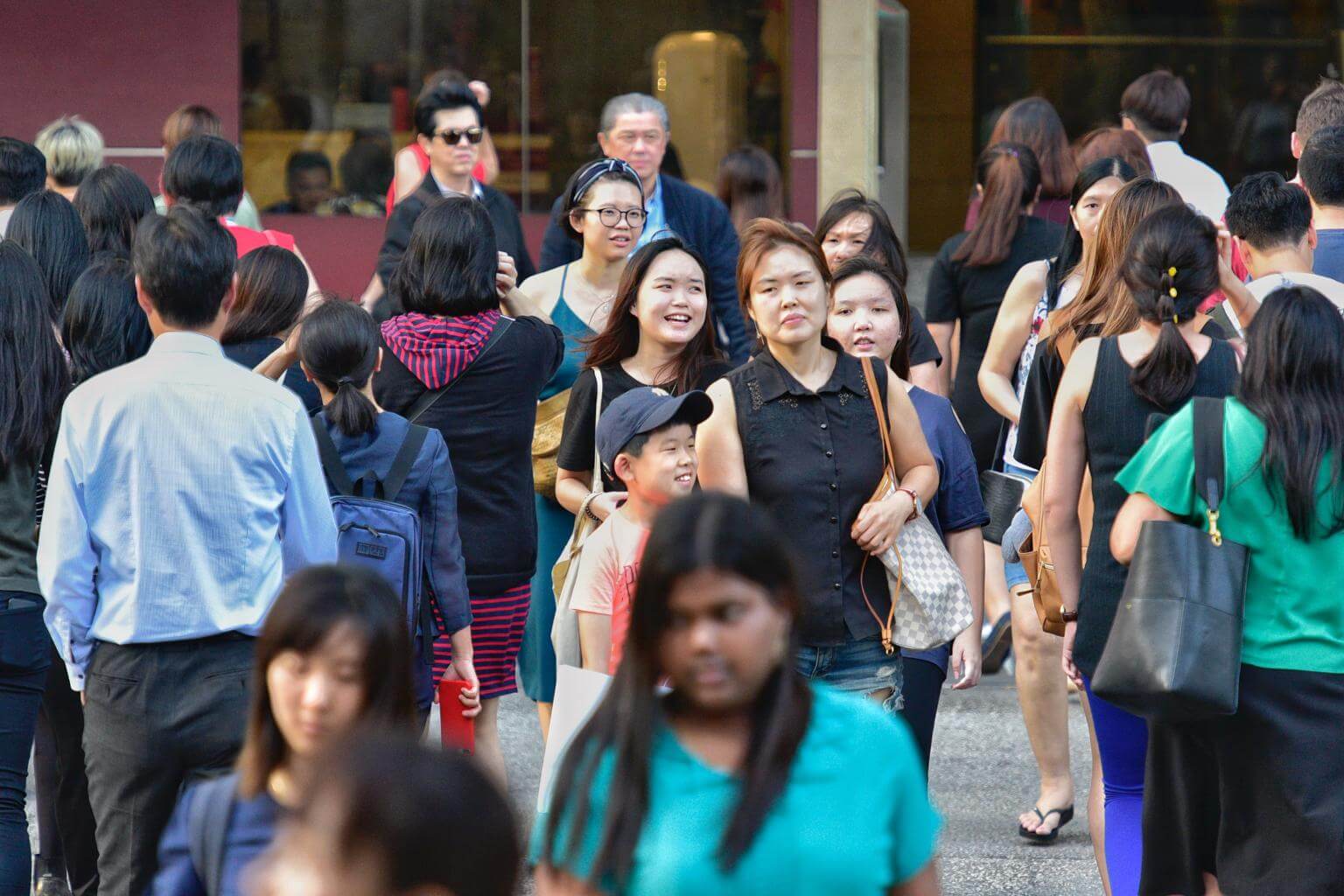Total population 5.64m, with number of citizens up 1% to 3.47m
Sign up now: Get ST's newsletters delivered to your inbox

Of the 5.64 million, the number of Singapore citizens went up by 1 per cent to 3.47 million, according to the annual Population in Brief report.
ST PHOTO: DESMOND WEE
Singapore's total population rose to 5.64 million in the 12-month period ending in June this year, with an increase of about 30,000 that is driven mainly by births among Singaporeans and the addition of new citizens.
This 0.5 per cent growth is an improvement on the previous period's 0.1 per cent, which is the slowest in more than a decade.
Of the 5.64 million, the number of Singapore citizens went up by 1 per cent to 3.47 million, according to the annual Population in Brief report released yesterday.
The rest comprises permanent residents (PRs) and non-residents, who include people who are here to work, their dependants and international students.
The number of PRs remains relatively stable at 0.52 million, while non-residents make up 1.64 million.
There was a slight decline in foreign employment, of around 10,000 people, in the 12-month period ending this June. This figure, which excludes foreign domestic workers, was due mainly to the fall in the number of Work Permit holders in the construction and marine shipyard sectors.
Meanwhile, the number of citizen births in the last calendar year totalled 32,356, a 2.4 per cent drop against that in 2016.
Still, the figure is higher than the past decade's average of about 32,200 births.
As for the resident total fertility rate, it fell from 1.20 in 2016 to 1.16 last year - the lowest in seven years. The rate needed to replace the population is 2.1.
The number of marriages involving citizens, however, rose 2.3 per cent to 24,417, an annual increase that is above the past decade's average of 22,500 citizen marriages.
Singapore gave citizenship to 22,076 people last year, among whom are 1,600 children born overseas to Singaporean parents.
The figure is in line with the 15,000 to 25,000 new citizenships that are granted each year, as part of Singapore's long-term policy to moderate the impact of an ageing population and low birth rates.
Still, Singapore continues to age, with people aged 65 and older making up 15.2 per cent of the population as of June this year, compared with 14.4 per cent a year ago.
The faster pace of growth of the elderly population is partly due to large cohorts of baby boomers entering the post-65 age category, the report said.
The median age of the citizen population also inched up from 41.3 to 41.7 years.
There are now about 4.2 citizens in the working age band of 20 to 64 years for every elderly citizen, a drop from 6.7 a decade ago. This number could plunge further to 2.4 in 2030, said the report.
Singapore University of Social Sciences labour economist Walter Theseira finds the relatively slow growth in population worrying.
A major consequence would be a contraction in economic growth unless there is an injection of new citizens or permanent residents, especially between the prime working years of 25 and 49, to help contribute to the coffers for social support schemes, he said.
While the Central Provident Fund savings help to ease the burden on taxpayers, Singaporeans need to keep this population issue uppermost on their mind.
"If you have zero or negative population growth, we would have to radically restructure the way we deal with major policies. For example, some things we take for granted, like new Housing Board flats, may no longer be built because there is not enough people to live in them," he added.


